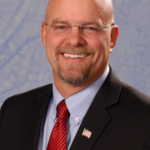By Barry Smith
The Nevada Supreme Court has upheld a strict reading of the state’s open-meeting law in a case that began with wildlife traps set by a Nevada state legislator five years ago and transformed into an ethics complaint.
It all began when Assemblyman Ira Hansen, a plumber, outdoorsman, former newspaper columnist and radio talk-show host from Sparks who is now running for the Nevada Senate, was accused by the Department of Wildlife in 2013 of setting traps too close to a highway in Churchill County. He was found not guilty by a judge of the $100 in fines because the law was too vague on whether his snares could be considered steel traps, and he has said that wildlife officers have a vendetta against him.

The case took its first twist when fellow Republican Assemblyman Jim Wheeler, while the trapping case was still pending, asked the Legislature’s lawyers to render a written opinion on whether box traps and snares — similar to what Hansen was using — would be considered illegal under the statute. That request drew an ethics complaint from Carson City resident Fred Voltz, who argued that Hansen and Wheeler had abused their positions as legislators by requesting a legal opinion to help Hansen’s defense.
Hansen moved to have the ethics complaint dismissed, but the Nevada Commission on Ethics refused. So Hansen went to court, where a judge ordered the commission to drop the complaint because only the Legislature can discipline its own members — a significant ruling in itself.

The Ethics Commission’s chairman and executive director authorized an appeal of the judge’s ruling, which had essentially rendered the commission toothless, and three days later an appeal was filed.
Here’s where Nevada’s Open Meeting Law comes in.
Hansen came back soon after the appeal was filed with a complaint that the Ethics Commission had violated the Open Meeting Law because the commission hadn’t met to vote on filing the appeal. Two weeks later, in December 2015, the commission held a meeting and ratified the decision.
Hansen and Wheeler then took the case back to court, arguing a violation of the Open Meeting Law had rendered the decision void. Nevada Supreme Court justices Jim Hardesty and Ron Parraguirre ruled in favor of the assemblymen, while Justice Kris Pickering dissented.
Last week, the full court dismissed an appeal on a 4-3 vote, leaving in place the ruling that the board failed to follow the open-meeting law.
The issue turns, in part, on who has authority to instruct an attorney to act on behalf of a public board.
While the law creates an exception for attorney-client meetings, it doesn’t allow the board to act in private — only to receive information and discuss a legal matter.
The way the statute is constructed, the definition of a meeting “does not include a gathering or series of gatherings of members of a public body … at which a quorum is actually or collectively present, whether in person or by means of electronic communication … to receive information from the attorney employed or retained by the public body regarding potential or existing litigation involving a matter over which the public body has supervision, control, jurisdiction or advisory power and to deliberate toward a decision on the matter, or both.”
Note that the board may deliberate toward a decision, but any action by the board still has to take place in an open meeting — with notice, agenda, minutes and the other trappings of the OML.
Here’s how Hardesty and Parraguirre describe it in their ruling:
First, “action,” as applicable to public bodies, is defined as a decision, commitment, or vote “made by a majority of the members present … during a meeting of a public body.” In order for a public body to make a decision, there must be a meeting. Although “the public body may gather to confer with legal counsel at times other than the time noticed for a normal meeting,” when the public body confers with its counsel, its “deliberations may not result in any action…. A decision to settle a case or make or accept an offer of judgment would be an action, which is prohibited in any type of closed meeting.”
Part of their logic is that the decision to appeal necessarily involves the expenditure of public tax dollars, and therefore needs to made by vote at a public meeting.
Also, the justices wrote, “It is the Commission as a whole that is the client — not the executive director, nor the Commission chair.”
I also appreciate a footnote in the ruling, which dismisses the notion that attorneys don’t have time to gather the whole board to make such a decision. “The Commission argues that it is unreasonable for its counsel to be expected to gain approval of a quorum, in an open meeting, in order to defend the Commission, especially considering the time constraints involved in filing an appeal. However, public bodies need only give three working days’ notice prior to holding a meeting.”
 Nevada Press Association The best in Nevada journalism since 1924
Nevada Press Association The best in Nevada journalism since 1924
